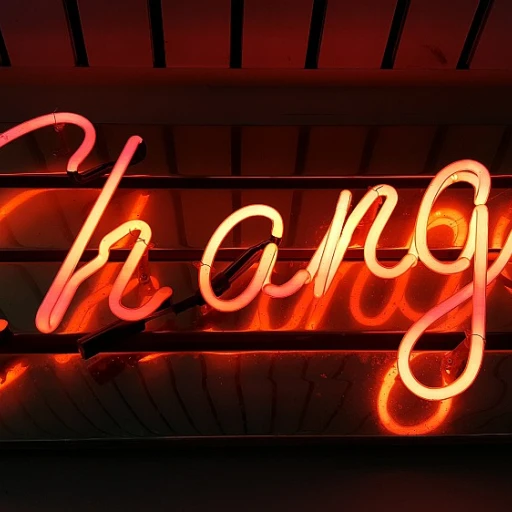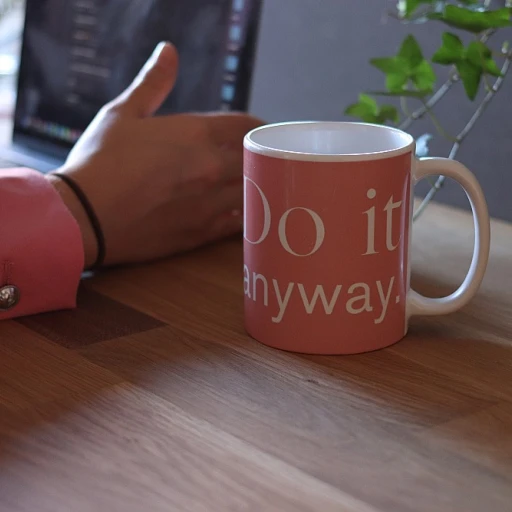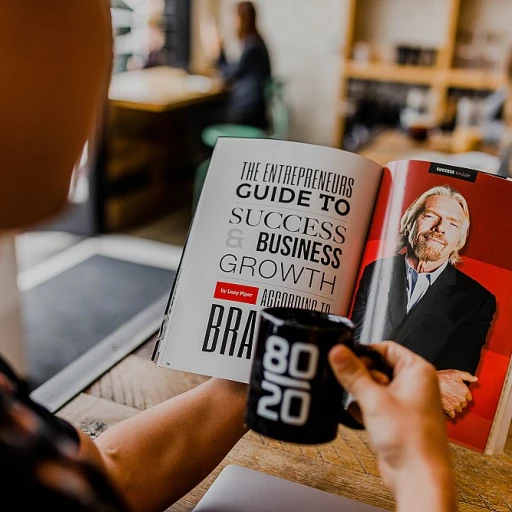Understanding the Importance of Good Interview Questions
The Significance of Well-Crafted Interview Questions
Crafting effective interview questions may often seem like a task reserved for the later stages of the hiring process. However, understanding their importance right from the outset is crucial. Interview questions serve as a window into a candidate’s potential fit for both the role and the company culture. They can significantly reduce the time needed to identify the best candidates for your team.
Employers often overlook the effect that good interview questions have on the overall candidate experience. Effective questions not only reflect a thorough understanding of the job requirements but also align with the company’s mission and values. This alignment will help your team to not only assess the technical skills of a candidate but also their soft skills and how they handle long-term problem solving.
Incorporating the right questions throughout the interview process can provide insights into a candidate's ability to work collaboratively with team members. If you are interested in crafting teamwork-centric queries, check out
this guide on crafting effective teamwork questions for interviews.
The right questions can help recruiters evaluate how candidates will perform in the job, contribute to the team, and align with the company's long-term goals. They can elicit answers that reveal not just what a candidate has done in the past, but how they will handle the challenges of the role they are applying for.
As we move into more specifics in subsequent sections, remember the ultimate goal of your interview questions: to seamlessly blend an evaluation of skills and cultural fit into a comprehensive candidate experience.
Types of Interview Questions to Consider
Exploring Various Types of Interview Questions
When planning for a job interview, selecting the right questions is an important step. The variety of interview questions available can assist in evaluating whether a candidate is the best fit for the role. It's crucial to approach this aspect with a strategy that aligns with the company's objectives and values, creating an efficient interview process.
Consider the following types of questions:
- Behavioral Questions: These are essential to assess how candidates have handled situations in the past, giving insights into their problem-solving skills and how they will likely perform in future working environments. For example, you might ask them to "describe a time when they effectively collaborated with team members to achieve a common goal."
- Situational Questions: Similar to behavioral questions, these require candidates to demonstrate their problem-solving abilities, but they focus on hypothetical scenarios that they could encounter in the job. This helps to assess their quick thinking and adaptability.
- Technical Questions: These target the technical expertise necessary for a specific role and help in determining the depth of a candidate's knowledge and skills. Such questions are vital for positions requiring specific technical abilities.
- Soft Skills Questions: This type targets the candidate’s personal attributes and interpersonal skills. Since teamwork is crucial, understanding how a candidate collaborates and communicates is significant for their long-term success in a company.
Choosing the right mix of question types will help ensure that the interview is comprehensive and robust. This tactic allows both the interviewer and the candidate to explore how well-suited they are to the company culture and the specific role.
For a deeper dive into essential questions for higher-level interviews, check out this article on
essential questions for director-level interviews.
Crafting Questions That Reflect Company Values
Aligning Interview Questions with Company Values
Crafting interview questions that mirror the ethos and values of your company is a strategic way to ensure candidates not only possess the required skills but also fit into your company culture. This alignment helps potential hires feel more connected to their prospective workplace, encouraging them to engage with the job interview process more genuinely.
When developing questions, consider how they can help elucidate a candidate’s ability to embody your organization's principles. For instance, if your company values teamwork, you might ask candidates to describe time when they worked within a team to achieve a common goal. Such questions help in discerning how well candidates will integrate with existing team members and contribute to the work environment.
For roles that demand problem solving, questions that encourage candidates to demonstrate their experience in this area can be particularly revealing. Asking candidates how they handle question of a challenging situation, or a specific problem, will allow you to gauge their approach and thought process.
Behavioral interview questions are effective tools in extracting information about a candidate’s past experiences and how these might translate into future performance. Incorporating queries that focus on past behavior aligned with your company’s long term mission will provide valuable insights into how the candidate operates under similar circumstances.
Don’t forget to weigh the balance. While open-ended questions are excellent for understanding a candidate’s mindset and capabilities, specific questions will help you pinpoint their technical skills relevant to the role. In doing so, you will bridge the gap between potential and practical aptitude, ensuring that the interview process authentically represents both the company’s needs and the candidate’s suitability.
By aligning your
interview questions with your company's core values, you not only improve your hiring decision but also enhance the overall candidate experience, making it more coherent and meaningful.
Balancing Open-Ended and Specific Questions
Finding the Right Balance in Interview Queries
Crafting the perfect interview queries requires balancing open-ended and specific inquiries. When trying to evaluate a candidate's fit for a role, you must carefully construct your interview questions to draw out both soft skills and technical expertise.
Open-ended questions, such as "Describe a time you handled a challenging situation at work," can provide deeper insights into a candidate's problem-solving abilities and how they might fit into the team. These questions help reveal not only how candidates think but also how they handle stress and their approach to teamwork within a company culture.
On the other hand, specific questions focus on direct answers related to job responsibilities or technical skills. Consider asking about particular tasks the role demands or problems candidates will likely encounter. Specific questions can be particularly helpful during a behavioral interview to assess if the candidate's skills align with team members' requirements.
Balancing these types of questions ensures you gather comprehensive evidence of the candidates' experiences and competencies. Open-ended questions give room for candidates to elaborate on their strengths, while specific questions hone in on immediate job necessities and how candidates might contribute to long-term goals.
Taking the right approach to your interview process by varying your questions strategically will help you glean the best answers. This method supports a well-rounded evaluation of candidates, ultimately aiding in selecting the ideal fit for the role.
Avoiding Common Pitfalls in Interview Question Design
Avoiding Common Traps in Designing Interview Queries
In the intricate process of interviewing, one might inadvertently fall into certain traps when formulating questions. It's vital to craft questions that not only reveal a candidate's qualifications but also align with the company’s ethos. This ensures you're not just acquiring a skill set, but a perfect fit for your company culture, adding value to the team.
One common pitfall is over-relying on generalized questions. Though they might seem useful, overly broad questions can lead to vague answers that don't provide insight into a candidate's true capabilities or experience. For instance, asking a candidate to "describe a time when they handled a problem" without further specifics can lead to generic responses that aren't truly indicative of their problem-solving skills.
Another potential pitfall is failing to balance between open-ended and specific questions. A question like "Can you describe your role in your previous job?" is essential, but it should be followed by more targeted queries that address particular skills or experiences pertinent to the job. This not only helps in assessing a candidate's work experience but also reveals how they collaborate with team members.
It’s important to avoid bias in questions that may stem from assumptions about different roles or candidates' backgrounds. Ensuring questions are inclusive and fair will help in maintaining a diverse and equitable hiring process, which is crucial for long term success.
Moreover, questions that overly stress theoretical knowledge over practical application can be misleading in evaluating a candidate's true potential. Ensure that questions interview candidates in such a way that they reflect both knowledge and soft skills.
Ultimately, the goal is to craft a set of interview questions that offer a holistic view of the candidate's ability to fit into the role and the company. It's about exploring their potential to excel and contribute as a valuable team player. In doing so, you not only enhance the candidate's experience but also fine-tune the hiring process for the best outcomes.
Evaluating Candidate Responses Effectively
Evaluating Answers to Uncover True Potential
Effectively evaluating candidate responses during an interview is as crucial as asking the right questions. The goal is to determine if the candidate possesses the necessary skills, problem solving abilities, and aligns with the company culture. Here’s how to assess their answers with precision:
- Contextual Relevance: Begin by evaluating if the candidate's responses are relevant to the role and aligned with the specific interview questions asked. For instance, when candidates describe a time they overcame a challenge, do their answers reflect the competencies required for the job?
- Depth of Experience: Dig into the depth of their experience. Quality responses reflect not only what candidates did but also the impact of their actions on their team and company. This is often seen in behavioral interviews where past experiences illustrate future potential.
- Problem Solving: Pay particular attention to how candidates handle questions that involve problem solving. Their approach to tackling challenges and unforeseen issues can signal their capability to work under pressure and their decision-making skills.
- Alignment with Company Values: Reflect on whether the candidate’s answers exhibit values that resonate with the company’s ethos. This helps in identifying long term employees who will integrate well with the team and access the best of company resources.
- Communication and Clarity: Assess the candidate’s communication style. Clear and concise responses often reflect organized thinking and can be indicative of how they will manage team communication and handle tasks on the job.
- Behavioral Cues: While verbal responses are crucial, non-verbal cues can provide a deeper insight into a candidate's personality and demeanor. These can contribute significantly during final interviews when soft skills become essential.
Evaluating answers effectively during the interview process requires a careful balance of active listening and keen observation. This not only aids in selecting the right fit for the role but also enhances the overall candidate experience by ensuring each interaction is meaningful and reflective of the company's commitment to excellence in its hiring process.














